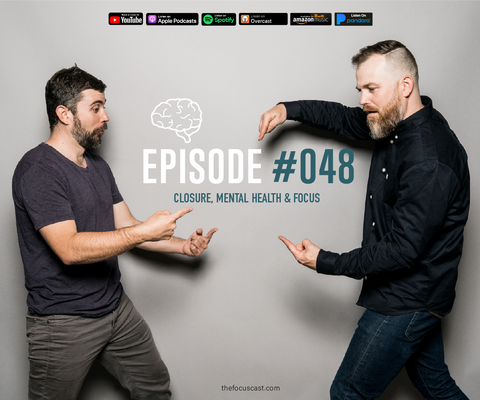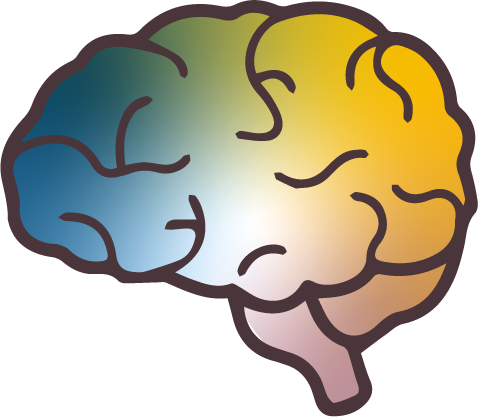
#48 Closure, Mental Health & Focus
Let's close some shit out! Did you know there’s a phycology term for cognitive closure? Turns out seeking closure in a big part of human existence. In this episode we’re seeking closure on how closure affects our lives and relates to mental health.
LISTEN
PROBLEM
- So what is cognitive closure:
- The state in which an individual recognizes that he or she has achieved understanding of something.
- The final stage in figuratively seeing the total picture and how all pieces of it fit together. (APA Dictionary of Psychology)
- Level of Need: If you are at the top of the scale you’ll have some preferences towards predictability, order and organization. If you are on the bottom part, you’ll feel more comfortable in open and ambiguous situations, and you won’t feel that bothered with indecision. Most people though, find themselves around the middle part of the scale, to put it another way, they value order but they can live with a certain level of uncertainty.
PROS/CONS OF COGNITIVE CLOSURE
- The lack of closure leaves a situation in ambiguity. People high in need for closure seek to avoid this ambiguity at all costs where people high in need to avoid closure strive to make situations more ambiguous.
- Some perceived benefits of cognitive closure may relate to predictability, the basis for action, or social status accorded the possessors of knowledge
- Similarly, some perceived costs of lacking closure may relate to the additional time and effort required to attain closure, or the unpleasantness of process whereby closure must be reached
- Occasionally, however, lack of closure maybe perceived to offer various advantages such as freedom from a constraining commitment, neutrality in an acrimonious dispute, the maintenance of a romantic mystery and so on
- Though lack of closure is generally thought of as being negative, it is clear that closure and lack of closure have positive or negative implications depending on the person and situation surrounding them (Wiki)
SOLUTION
- The Need for closure scale: (NFCS)
- Webster and Kruglanski. An updated version of the NFCS, was published in 2007 by Roets and Van Hiel. kruglanskiarie.com
- ‘a’— measure the need for order,
- ‘b’ –- measure the need for predictability,
- ‘c’— measure decisiveness,
- ‘d’— measure avoidance of ambiguity,
- ‘e’— measure closed mindedness.
- Need for cognitive closure predicts stress and anxiety of college students during pandemic (Study National Library of Medicine)
- The unprecedented level of uncertainty associated with the pandemic may be a contributing factor to stress and anxiety, especially among individuals with high intolerance to uncertainty (Rettie & Daniels, 2021). Individual differences in need for cognitive closure have also been linked to mental distress during unpredictable situations (Berenbaum et al., 2008 (Makes sense to me)
- Finding Closure/Summary
- Find your personality type? Maybe you have a high need for closure?
- Reflect: What are you holding onto and why

Comments (0)
There are no comments for this article. Be the first one to leave a message!